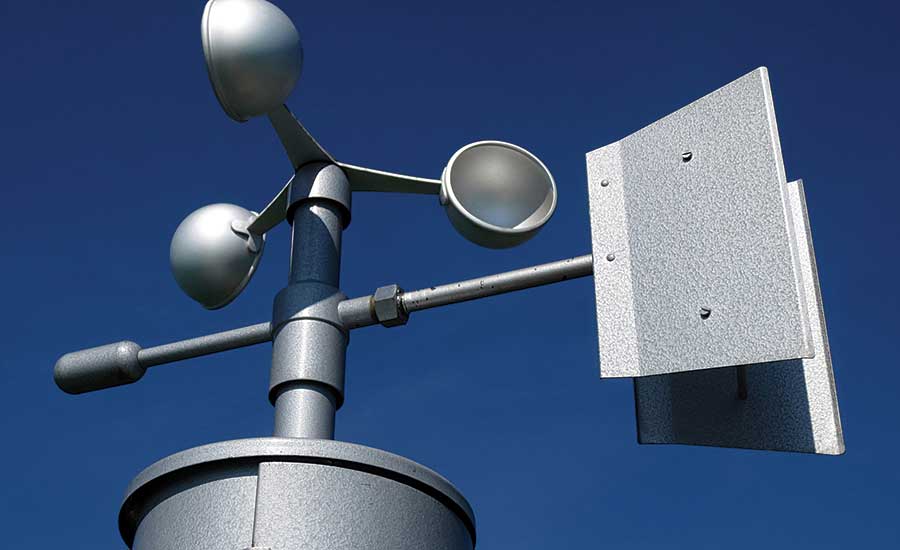The second law of thermodynamics

That should be the favorite song of any installer who tries to fight this one. Mother Nature is stubborn when it comes to evening out things. She is forever trying to put everything on our planet back into the elemental state from whence it came. Mix iron with carbon and you get steel. We like that. It’s useful. But Mother Nature looks at the steel, shrugs and turns it to elemental rust. There’s a fancy word for that — entropy. I feel it in my old bones most mornings.
Sit next to a radiator on a cold day and you’ll feel The Second Law of Thermodynamics. The radiator is hotter than you are, so energy flows from it into you. Nice. The opposite happens when you’re on the ice rink. Unless you happen to be dead, you will be warmer than that which is beneath your skates, so get skating because if you stand still too long, the Btu in your body will dive into that ice and make you miserable. Brrr!
It’s a simple concept and one we see just about everywhere we look. My friend Harvey described it this way. “Heat is like a little wanderer that can never find a home. It always is too hot and looking to cool off, so it will keep on moving to cooler things, leaving a little bit of itself everywhere it goes. The only time it stops to rest a bit is when it can’t find a cooler place because everything around it feels the same.”
And isn’t that deliciously visual?
I was helping a contractor solve a problem with some zone valves in an apartment building a few years back. The valves were banging and shaking the baseboard radiators whenever they opened or closed.
“Are the valves in backward?” I asked.
“Absolutely not,” the contactor said. “Here, look.” He pointed to the pipes and they were marked with arrows that showed the direction of flow. “Everything’s as it should be,” he said.
But the valves kept banging as if they were in backward.
“Let’s try something else,” I said.
“What?”
“Shut it all down and let it go cold,” I said.
We went out for coffee and when we got back we turned it on again, but this time I was kneeling on one side of the room holding the pipe that fed the baseboard and he was doing the same on the return side.
“OK,” I said, “let’s see who says ouch first.”
He did. And he was on the return side not the supply side. I should have felt the heat first. I smiled. He frowned. Turns out the whole job was piped backward and he had to turn every zone valve in the building around. Sometimes the arrows lie. He wasn’t the original installer, so for him this was a happy ending.
“You know what the first guy should have done?” I said.
“What?”
“He should have installed the arrows on the inside of the pipes so the water would know where it was supposed to go. That would have solved the problem. You want to suggest that to the owner?”
He chose the more-profitable path.
Truth is people get distracted, but Mother Nature never does. So when in doubt go back to the laws that never lie and trust them. Hot goes to cold. High pressure goes to low pressure. Always. It’s all about that gorgeous Second Law of Thermodynamics. Mother Nature likes to keep things simple.
But then there are times when The Law hides. Take when we work with steam, for instance. Work with steam and you’re working with latent heat. That’s what warms the radiators and the people, and that heat is there at 0-psi pressure. The only reason we need pressure in a steam-heating system is to overcome the frictional resistance the pipes offer as the steam flows from the boiler to the radiators. The Dead Men set that resistance at a mere 1 oz. of loss for every 100 ft. traveled. That’s hardly anything at all.
So think like a British thermal unit. You enter liquid water (not ice) that’s at 32° F. A bunch of your friends follow you into the pool. If enough of you get into that water you’re all going to bring the temperature up to 212°. But is that steam? Nope. That’s just really hot water. To make steam at that point we have to add more than five times the amount of Btu that it took to get the water from 32° to 212°. Those extra Btu are going to get those water molecules so excited that they’re jumping around and finally leaping off the surface and going airborne as steam. And that’s going to happen at 0 psi while the temperature on the thermometer remains at 212°. That’s latent heat. You can’t measure it with a thermometer.
The Second Law of Thermodynamics always applies, but sometimes it hides inside the process. You can see this most clearly in your imagination if you think about what I just described. Visualize this stuff. It’s much easier to understand things that way and then you’ll be able to explain it to others.
Formal talk
Speaking formally, here’s the formal definition of The Second Law of Thermodynamics: “In any cyclic process the entropy will either increase or remain the same. Entropy is a state variable whose change is defined for a reversible process at T where Q is the heat absorbed. Entropy also is a measure of the amount of energy which is unavailable to do work.”
Huh?
Lawyers and engineers sound about the same, don’t they? How about if we say hot stuff goes to cold stuff. Always. Oh, and most metals like to rust so they can turn back into what they were before we got involved.
There. Better?
Want to get better at explaining technical stuff to folks who are not technical? Get a copy of “Thing Explainer — Complicated Stuff in Simple Words,” by Randall Munroe. It’s a brilliant picture book that will make you better at telling people what they need to know.
Another terrific book about all of this is “Rust: The Longest War,” by Jonathan Waldman. The stories in that one made my jaw go slack.
Speaking of which, I once asked a friend how he would explain The Second Law to his five-year-old son in a way the kid could understand. He said, “I’d tell him if he left his cold soda in a warm room, the soda will get warm because hot always goes to cold. The only exception to this is his mommy. If he doesn’t clean up after himself, she will go from being cool to very hot. Always.”
“And don’t leave that cold soda on the end table without a coaster, right?”
“Yeah,” he said. “That also will reverse The Second Law, and in a hurry.”
Looking for a reprint of this article?
From high-res PDFs to custom plaques, order your copy today!






